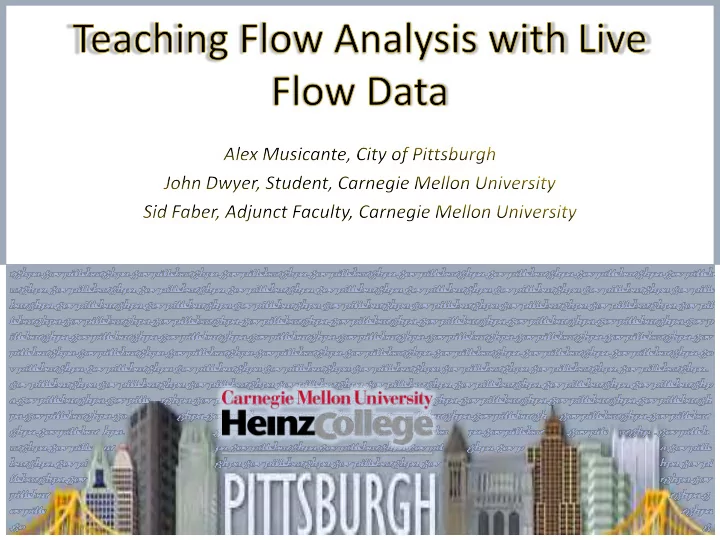

3
• Org Structure – Politicians – IT • Network Structure 5
• History of projects between CMU and the City – Heinz College – Information Systems & Management – Public Policy and Management • “Penetration Test” project last year – Technical exercise – Policy assessment and recommendations 6
• Initiated discussions with the CIO • Review & approval by City Legal, CMU Legal, others • Volunteers installed a sensor at the primary internet connection 7
• Network Situational Awareness class – http://www.andrew.cmu.edu/course/95-855/ – Instructors: • Tim Shimeall* • Sid Faber – Anonymized data • MAWI, Internet 2, CDX 8
• Gain Network Situational Awareness • Provide information back to the city • Done in the blind 9
• Find Heavy Hitters • Create a profile • Eliminate bogons • Monitor over time 10
• ACL / Least Privilege • DNS • Policy Validation – Remote Access (Gotomypc) – Streaming Video 11
• Network Profile – Scans – Client Web, Served Web – Servers as Clients – Email – DNS – NTP – Etc. 12
13
14
15
16
17
• Network Situational Awareness: – Perceive: Network flow sensor – Comprehend: Network profile, leftovers – Project: What does this mean to me? 18
• All packets are innocent until proven guilty – Profile by country – Scan traffic, inbound traffic 19
• Leveraging university, Limited resources • External validation – Support for external auditors 20
• Initial impression: too much data • Dividing traffic led to identifying patterns • Couldn’t really be done with full packet data 21
• Improve the sensor – Instrument the cold spare – Instrument internally – Add metadata • Add a security focus • Add a geopolitical focus 22
Recommend
More recommend